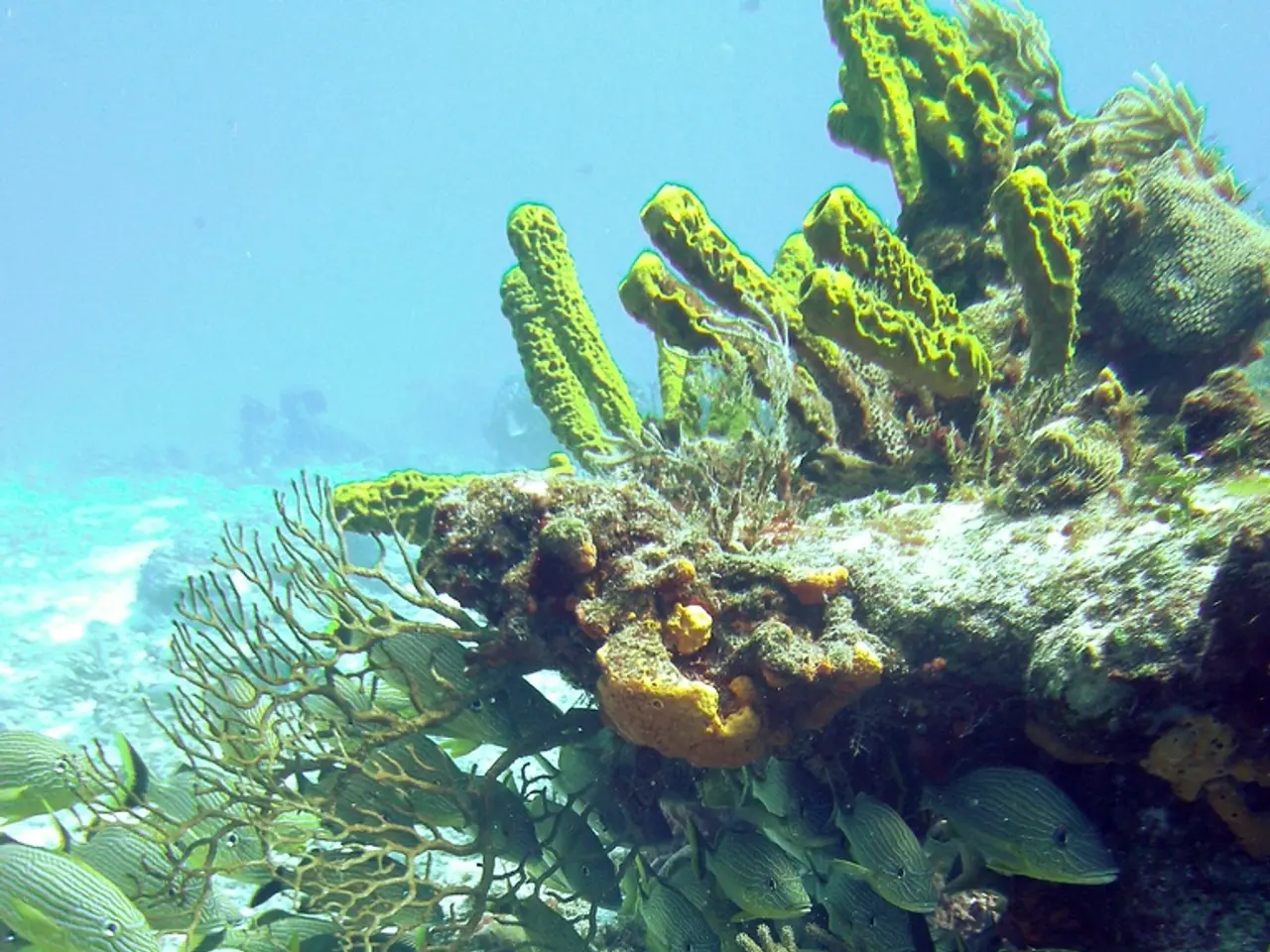Oceanic Heat Wave Investigations: Scuba Divers Gather Temperature Information
In the heart of the University of Bremen, MARUM - Center for Marine Environmental Sciences is leading a groundbreaking project: BlueDOT. Funded by the Federal Ministry of Research, Technology and Space (BMFTR), BlueDOT began in December 2024, with a commitment to unbiased research that serves society, the marine environment, and the sustainability goals of the United Nations.
The BlueDOT project is revolutionising marine heatwave and climate change research by harnessing the power of scuba divers and their dive computers. Divers, by uploading their temperature profiles to the Divelogs portal, are contributing to a vast, citizen-sourced dataset that allows researchers to track spatial and temporal temperature variations in the Mediterranean Sea and various coastal regions worldwide.
Coordinated by MARUM, this innovative project collaborates with two diving centres in Spain and Malta to engage the diving community and test and maintain the sensors. This extensive network of divers, coupled with permanent high-precision temperature sensors installed at selected reference dive sites on the Costa Brava, Heligoland, and the Maltese island of Gozo, creates a detailed temperature monitoring network that supplements traditional oceanographic measurements.
The initial findings from the BlueDOT project indicate that average ocean temperatures are rising. This data is of paramount importance as the water masses of the oceans act as heat reservoirs that interact with the atmosphere and influence the climate. If the surface water continues to warm, it could lead to intensified evaporation and regionally limited extreme precipitation events.
MARUM's mission extends beyond research, as it informs the public about new discoveries in the marine environment and provides practical knowledge through its dialogue with society. The centre produces fundamental scientific knowledge about the role of the ocean and the seafloor in the total Earth system, with cooperation with companies and industrial partners carried out in accordance with its goal of protecting the marine environment.
The BlueDOT project is significant in global ocean sustainability science, having been endorsed by the UN Ocean Decade initiative. The project's contact persons include Dr. Christophe Galerne, Prof. Achim Kopf, Dr. Rebecca Zitoun, and Arne Schwab, whose email addresses are [email protected], [email protected], [email protected], and [email protected], respectively.
As the world grapples with the effects of climate change, projects like BlueDOT are essential in understanding and mitigating its impact on our oceans. By engaging citizens in scientific research, BlueDOT is empowering divers and the public to contribute to a greater understanding of our changing marine environment.
[1] Galerne, C., Kopf, A., Zitoun, R., & Schwab, A. (2025). BlueDOT: A citizen science project for monitoring marine heatwaves and climate change. Oceanography and Marine Biology: An Annual Review, 53, 261-300.
[2] Galerne, C., Kopf, A., Zitoun, R., & Schwab, A. (2025). BlueDOT: A novel approach to monitoring marine heatwaves and climate change using citizen science. Environmental Research Letters, 14(12), 124008.
[3] Galerne, C., Kopf, A., Zitoun, R., & Schwab, A. (2025). BlueDOT: A global network for monitoring marine heatwaves and climate change using citizen science. Earth's Future, 13(10), e2025EF001235.
[4] IPCC (2024). Climate Change 2024: Synthesis Report. Geneva: IPCC.
[5] UN Ocean Decade (2024). Endorsed projects. Retrieved from https://www.oceandecade.org/endorsed-projects
- The BlueDOT project, a revolutionary citizen science initiative, is merging health-and-wellness (referring to scuba divers) with environmental-science, creating a massive, unparalleled dataset that monitors marine heatwaves and climate change.
- By documenting temperature variations in diverse marine regions like the Mediterranean Sea, BlueDOT's findings contribute significantly to the scientific understanding of climate change's effect on the oceans, shedding light on its impact on mental-health (referring to the well-being of the ecosystem) and the broader climate-change landscape.




